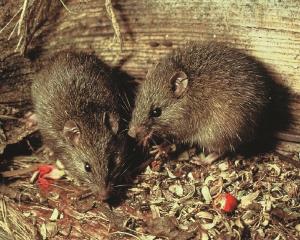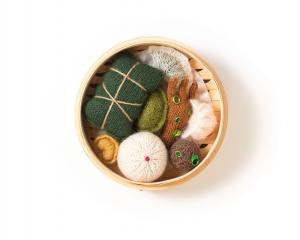
It's important to establish healthy eating habits for children early on, parenting columnist Ian Munro writes.
I have written several columns on obesity and sugar over the past year, so I thought this week I would take a more positive approach and discuss one of the solutions for children over two, healthy eating.
I'm not presuming to give any medical advice and, if you are aware of major problems that could be diet-related, then you should discuss them with your doctor or a dietitian. On the other hand, many of the suggestions below could well apply to all of us.
Nutritionists recommend that children between two and 12 years old eat two to three servings of vegetables and two servings of fruit each day. As a rule of thumb, a serving is the amount that will fit into their hand. Provide a variety of colours to give a variety of vitamins and minerals.
Daily carbohydrates and fibre needs for energy can be met by wholegrain bread, cereal, pasta or rice.
Lean meats, chicken, seafood, eggs, dried peas, beans or lentils will supply protein, vitamins and minerals.
For healthy snacks, go for sandwiches, crackers, vegetable sticks with cottage cheese or hummus, cold cooked vegetables, fresh fruit, plain popcorn, scones, pancakes, cereals low in sugar and fat, natural yoghurt and cheese.
Chips are high in fat and snack and muesli bars can be high in sugar and fat. A little rolled oats and dried fruit doesn't necessarily make the bars healthy. Nor does ''no added sugar'' mean a product is low in sugar: dried fruit can be almost all sugar.
Right from the start, refrain from adding sugar or honey to sweeten foods.
Most takeaways are high in fat, salt and sugar. Make them treats: try kebabs, sushi, thick wedges, baked potatoes, pasta or rice and noodle-based meals with vegetables. Better, make your own low-fat, salt and sugar-free ''takeaways''.
Children need small drinks often and water is best. Two to three cups of low-fat milk daily will provide protein and calcium. Fruit drinks and juice are all high in sugar. Water them down for an occasional treat. Add three times as much water as instructed to cordials and powered drinks.
Soft drinks are best avoided along with all energy drinks, tea and coffee. Caffeine aside, the tannin in tea reduces iron intake.
We control the food supply and can establish healthy eating habits, including regular meal and snack times. Started young, we can prevent problems such as serious tooth decay, obesity and diabetes later.
These tips are for children over two. Information leaflets on healthy eating for all age groups can be obtained online from the Ministry of Health, and from community health services and your family doctor.












